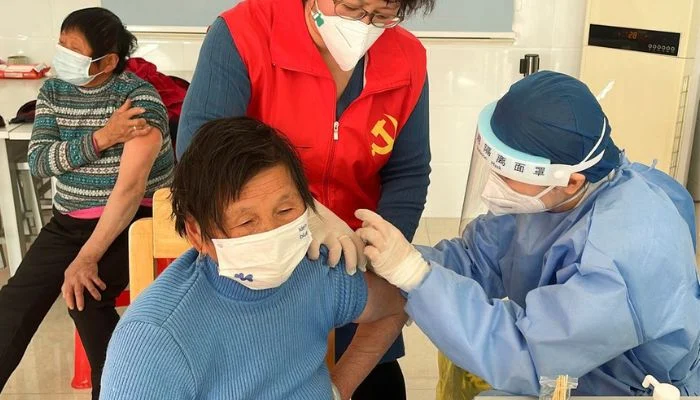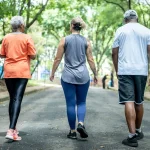SHANGHAI/BEIJING: A Shanghai hospital has advised its staff to prepare for a “tragic battle” with COVID-19 because it anticipates that half of the city’s 25 million people will become infected by the end of the year as the virus spreads unchecked throughout China.
China began dismantling its “zero-COVID” regime this month, which has had a significant financial and psychological impact on its 1.4 billion people after widespread protests and an unstoppable rise in cases.
However, China’s official death toll from the pandemic, which began three years ago, stands at 5,241, is significantly lower than that of the majority of other nations.
Even though workers at funeral parlors claim that demand has increased over the past week, which has led to higher fees, China did not report any new COVID deaths for the second day in a row on December 21.
389,306 cases of COVID with symptoms have been confirmed by authorities, who have tightened the criteria for COVID deaths, which has drawn criticism from numerous experts in the disease.
Since restrictions have been lifted across China, fewer tests are being carried out, according to some experts, making official figures less reliable.
On its official WeChat account late on Wednesday, the Shanghai Deji Hospital estimated that the city had approximately 5.43 million positive cases and that 12.5 million people in China’s main commercial hub would contract the disease by the end of the year.
The hospital stated, “Christmas Eve, New Year’s Day, and the Lunar New Year are destined to be dangerous.”
“In this tragic battle, the entirety of Greater Shanghai will be destroyed, and we will infect every hospital employee! We’ll spread the virus to everyone! We will all have an infection! We are stuck, and we can’t get out.”
Many Shanghai residents lost their jobs and lacked easy access to essentials during the lockdown, which lasted for two months and ended on June 1. During those two months, hundreds perished and hundreds of thousands were infected.
Due to the relatively low full vaccination rates among China’s vulnerable elderly population, experts predict that the country may experience more than a million COVID deaths in the coming year.
According to data provided by the government, although the vaccination rate in China is greater than 90%, the percentage of adults who have received booster shots drops to 57.9% and to 42.3% for those aged 80 and older.
State-run CCTV footage captured rows of elderly patients in the intensive care unit breathing through oxygen masks at a Beijing hospital. How many people had COVID was unknown.
Han Xue, the hospital’s deputy director of the emergency department, told CCTV that they were seeing 400 patients every day, four times more than usual.
Han stated, “These patients are all elderly people who are in a very serious condition and have underlying diseases, fever, and a respiratory infection.”
The head of the World Health Organization said that the increase in infections is worrying and that it is supporting the government’s efforts to focus on vaccinating people who are most at risk.
For a comprehensive assessment, the WHO, according to Director-General Tedros Adhanom Ghebreyesus, requires more in-depth data on disease severity, hospital admissions, and intensive care unit requirements.
Free medicine
As a result of China’s policy reversal, a fragile health system was unprepared, with authorities rushing to construct special clinics and pharmacies frantically searching for supplies like blood and beds.
Smaller towns further from the prosperous eastern and southern coasts are especially at risk. On Wednesday, Tongchuan, a 700,000-person city in the northwest of Shaanxi province, urged all retired medical professionals to join the fight against COVID.
A public notice stated, “Medical institutions at all levels in the city are under great pressure.”
According to state media, pharmaceutical companies were working extra hours to increase supplies while local governments attempted to address drug shortages.
According to a report in the state-run Global Times, cities all over the country were handing out millions of ibuprofen tablets to medical facilities and retail pharmacies.
Germany claimed to have delivered the initial supply of BioNTech COVID vaccines to China, where they will be administered to German expatriates. Berlin is trying to get other countries to let other people take them.
In China, these would be the first mRNA vaccines that are thought to be most effective against the disease.
Nine domestically developed COVID vaccines have been approved for use in China.
The COVID wave is expected to reach its peak in late January, according to some Chinese experts, and life will likely return to normal by late February or early March.








